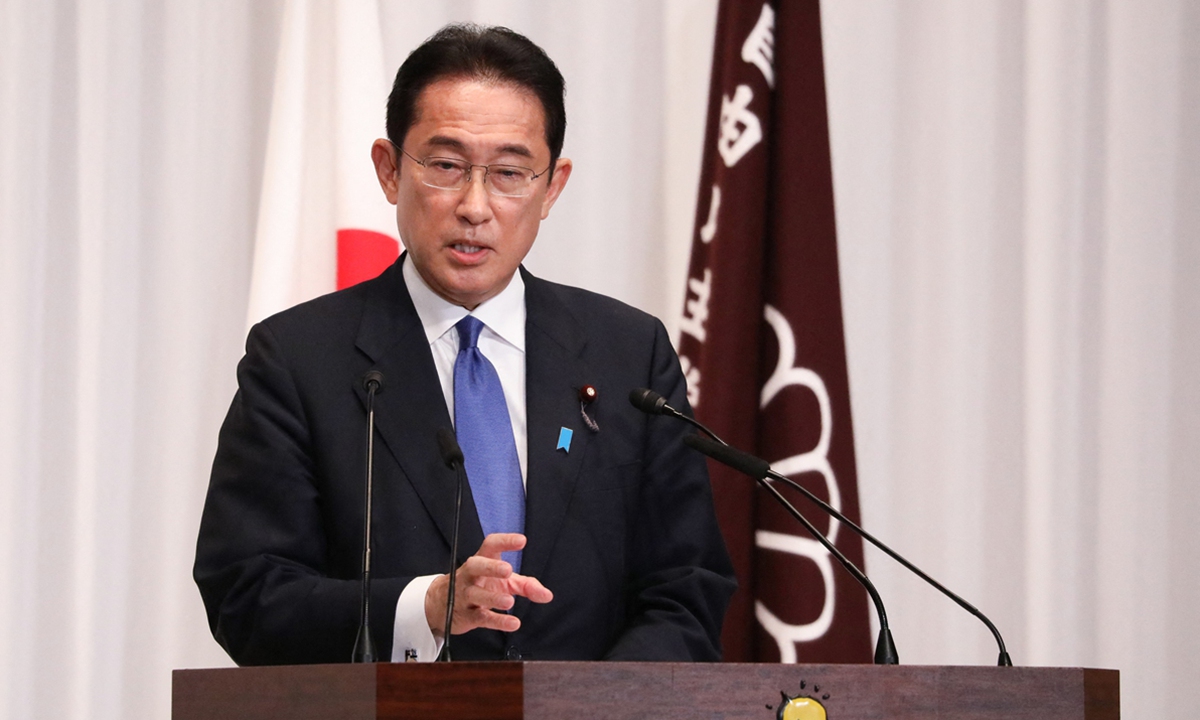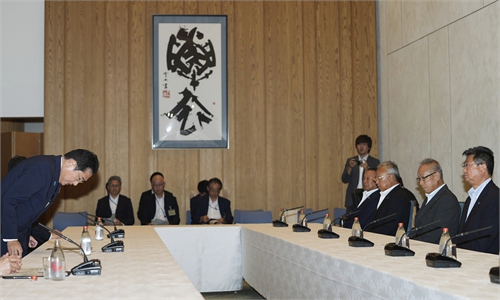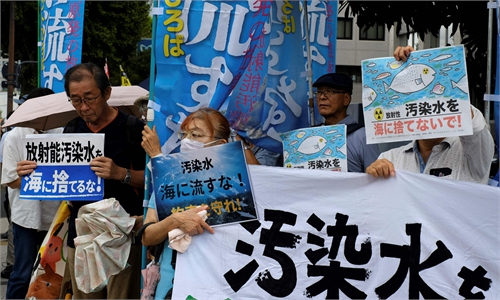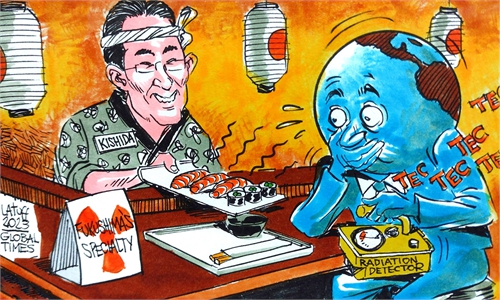
Fumio Kishida Photo: AFP
Japanese Prime Minister Fumio Kishida has been facing a headache recently: a constant low approval rating. Japanese media outlet Mainichi Shimbun reported on Monday that the approval rating for Kishida's cabinet stood at 25 percent in a recent nationwide public opinion poll conducted by the newspaper, tying the record low backing his administration saw in December 2022.A week beforehand, Kishida reshuffled his cabinet and executives of the Liberal Democratic Party (LDP), with 11 ministers taking on cabinet posts for the first time, while six remain in place. The new cabinet also includes five women among the 19 total positions, which is considered to be a selling point for boosting Kishida's support rate.
Judging from past, the approval rating for the cabinet often sees an obvious increase after a reshuffle, but the revamp failed to achieve such an effect this time, reflecting structural problems in the Kishida administration.
First, there was no pressing need for a reshuffle of the cabinet. The revamp this time seems to have infused new blood into the cabinet, but there has been no change in key positions, such as chief cabinet secretary, finance minister and minister of economy, trade and industry. Meanwhile, Kishida has retained Toshimitsu Motegi as his ruling Liberal Democratic Party (LDP) secretary general and Taro Aso as vice president, which means that the structure of the regime generally remains unchanged and current policies will continue.
In addition to Tetsuro Nomura, minister of agriculture, forestry and fisheries, who was replaced in the reshuffle due to the controversy over calling the Fukushima nuclear wastewater "contaminated," Deputy Chief Cabinet Secretary Seiji Kihara was replaced because of alleged scandals. But Kihara was soon appointed to the post of acting secretary-general of the LDP and special advisor to the chairperson of the Policy Research Council. This is just a change from governmental to party post.
Second, the cabinet reshuffle was only intended to complete the distribution of factional interests. After being elected president of the LDP, Kishida proposed that party officials rather than the president should be limited to one term of one year and only up to three consecutive terms. In this way, the LDP is bound to face a reshuffle every year. Kishida kept the positions of Aso and Motegi, but the issue of the appointment of other senior party members is still a very difficult matter for Kishida. Taking into account the balance of the major factions in the LDP, Kishida had to swap the positions of some members of the party and cabinet.
At the same time, the LDP has seen a considerable number of party members who are qualified to enter the cabinet but don't have the chance to because of Shinzo Abe's stable leadership since 2012. This pushed Kishida into the cabinet reshuffle. In other words, it is more of a coordination of the top party and government officials and an adjustment to satisfy the interests of different party factions.
Third, Kishida's reshuffle failed to bring about major policy changes. His nepotism and closed-mindedness are what Japanese public opinion has particularly criticized.
As far as his policies are concerned, Kishida said during his campaign for the leadership that people's voices should be heard; but what we see more in the process of policy formulation and implementation are his subjective assertions. For example, before the nuclear-contaminated wastewater dumping began, although Kishida visited Fukushima to inspect the area, he did not meet with or listen to the voices of the fishing communities in Fukushima Prefecture.
According to public opinion polls conducted by several media outlets, what the Japanese public questions most is Kishida's lack of leadership skills. The cabinet reshuffle did not touch on the essence of the problem, which is the crux of Kishida's low approval rating even after the revamp. Instead of focusing on gaining people's trust, Kishida seems to put his mind toward the distribution of political interests and the balance of power of party factions, so as to lay the foundation for his reelection in next year's LDP leadership election.
The author is an associate research fellow at the Center for Japanese Studies, Fudan University. opinion@globaltimes.com.cn



